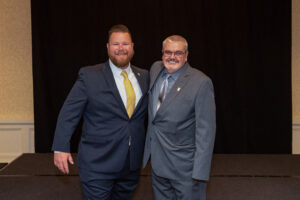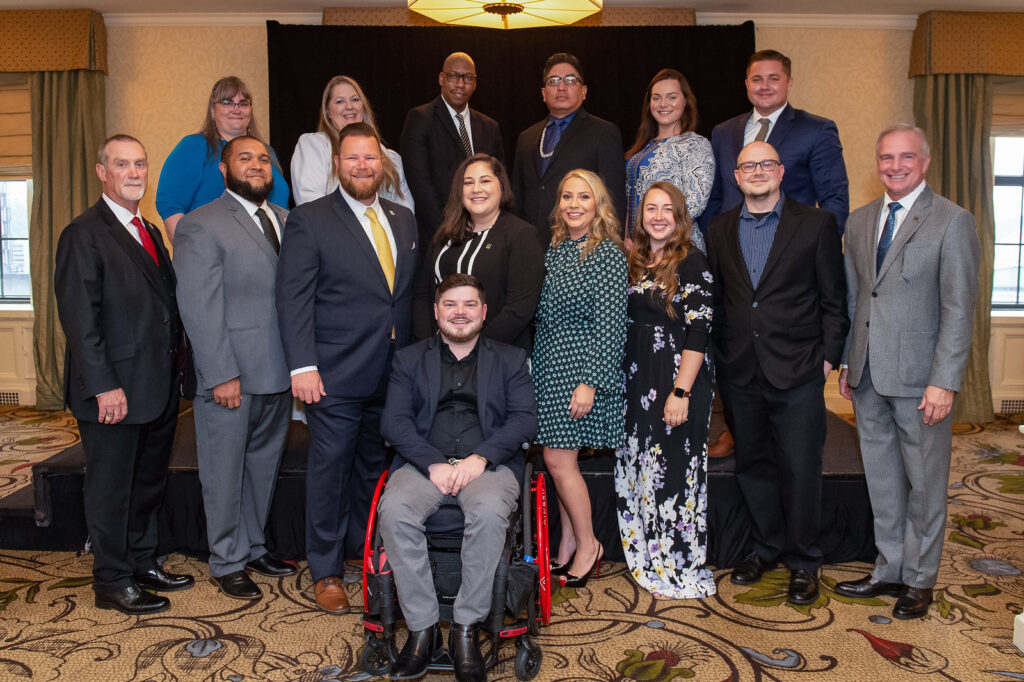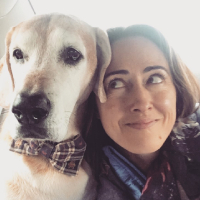
Board Shadow Program participant Kevin Gore
Encouraging and inspiring tomorrow’s leaders: Board Shadow Program participant Kevin Gore
Kevin Gore loves old buildings. As the director of building, housing and code enforcement for the borough of West Chester, which has a history dating back to the 18th century, he often has the opportunity to inspect historic buildings. Some of the structures in this 1.8 square-mile borough in Chester County, Pennsylvania, were built more than 200 years ago.

“The history is deep in this town,” said Gore. “There are a lot of historic structures here. My favorite part of the job is getting to go inside them as they are being renovated and seeing the historical bones of those old buildings. It really takes you back and makes you think about the individuals who built them and what they had to do to get them up and standing. It’s a testament to the history and the people who built the original towns that we live in.”
When Gore graduated from high school, he had his sights set on a career in law enforcement. While studying for his criminal justice degree, he found a part-time job to help pay for college. Unbeknownst to him at the time, that job was his first step away from law enforcement toward a career in building safety.
“My path was an interesting one and not one that I necessarily chose,” Gore said. “I like to say that the profession chose me.” When friends who worked in municipal government told Gore about an opening at one of the local townships, he applied and was hired. He worked in the public sector and learned about inspections while still studying for his criminal justice degree until he took a second step toward a career in building safety.
One of Gore’s college professors owned a third-party inspection company that conducted inspections and plan reviews for municipalities. The company hired Gore. He started attending school part-time while working for the inspection company full-time.
“After that is when I really decided that this is the career for me,” Gore said. “I fell in love with it.”
After working for his professor’s company for several years, Gore moved back into the public sector and spent six years working for a different municipality before joining the borough of West Chester four years ago. He discovered the International Code Council and its Emerging Leaders Membership Council (ELMC) around that same time.
“I got involved with the Code Council and the ELMC about four years ago when I took the position in West Chester,” Gore said. “I attended my first conference that year, and when I met some of the other emerging leaders, we just hit it off. They encouraged me to get involved in the Emerging Leaders Membership Council, so I did. The following year, I was elected to the governing council.”
Gore received a Code of Honor Scholarship to attend the 2019 ICC Annual Conference and Code Hearings in Las Vegas, Nevada, which is where he was elected to the ELMC Governing Council. The Code of Honor Scholarship program supports the professional development of International Code Council members by funding travel expenses associated with attending the conference and hearings. The scholarship made it possible for Gore to attend.
“It really goes to show that if you get involved in different membership councils and start helping out with different committees, things will start to make their way to you. If you’re involved and you’re willing to put the time and effort in, you will be rewarded for that.”
Gore’s active participation in the industry also earned him a spot in the Code Council’s prestigious Board Shadow Program. When Code Council Board Director Ron Hampton reached out and invited Gore to be his board shadow for the 2021 ICC Annual Conference in Pittsburgh, Gore was surprised and grateful.
“I told him, ‘Absolutely, I would be honored,’” Gore said. Although he had heard about the Board Shadow Program through colleagues, he had no idea he was being considered.
Gore said the main difference in being part of a conference as a Board Shadow compared to his previous experience was in attending the Code Council Board of Directors meeting. He appreciated the opportunity to get a behind-the-scenes look at the International Code Council and better understand the association’s goals and strategies. He also enjoyed hearing industry leaders share their thoughts and ideas.
“One of the requirements of attending the conference as a board shadow was that we had to attend the board of directors meeting,” he said. “That was something that I had never done before. I would recommend that anyone going to the mid-year meeting or the conference attend the public session of the board of directors meeting. You will obtain a wealth of information.”
Attending the conference also enabled Gore to network and develop professional relationships, which is something he values. Between the Board Shadow Program, the Emerging Leaders Membership Council and other industry connections, there is always someone willing to brainstorm or discuss ideas, no matter where they live in the country.
“I will reach out to other individuals if I have questions about a code. I can call them and say, ‘Hey, what’s your take on this?’ Having that resource and those connections is just tremendous. It’s a great way to get perspective from other individuals in the field.”
One of the topics Gore and his colleagues discuss is how to recruit the next generation of building safety and code enforcement professionals. For Gore, the key is to start locally.
“This is something that we have been working on recently with the ELMC and the Safety 2.0 initiative,” Gore said. “My take is that we need to get local [government] officials and local building code officials to reach out to the local schools and let them know, ‘Hey, there is a really great career path for you.’ In local technical high schools or colleges that have a lot of programs, whether carpentry programs or public safety programs, students are still trying to find themselves. If we can get the word out to them, I think we would have better success at getting younger people involved – not just in the trade but with the Code Council as well. I think it needs to start at a local level and branch out from there.”
Once someone does find this career path, Gore encourages them to seek new opportunities and ask a lot of questions. “Don’t be afraid to apply for a position,” he said. “Whether you are qualified or not, you have to get a start somewhere. And don’t be afraid to ask questions of people who are in the field currently because that is one of the greatest ways to learn. On-the-job training and finding somebody who can mentor you is a tremendous way to gain experience.”
He also encourages people to never stop learning. “Continue to gain knowledge, and continue to work towards obtaining additional certifications throughout your career. It doesn’t matter how long you’ve been doing it. You always want to continue to better your position.”
That has certainly been the case for Gore. He continues to seek out new opportunities and advance his professional skills. His list of ICC certifications includes Residential Building Inspector, Residential Energy Inspector, Building Inspector, Fire Inspector, Plumbing Inspector, Accessibility Inspector and Plans Examiner, Building Plans Examiner, and Plumbing Plans Examiner. He has also earned the Pennsylvania State Building Code Official certification.
His path to building safety may not have been a straight line, but Gore is glad he found his way here. He is thriving and loves what he does. “I enjoy helping people and getting to interact with the public on a daily basis. It’s rewarding knowing that you are making a difference in the community where you work and getting to provide a service to people that benefits them in a tremendous way.”
Although Gore left the law enforcement path to pursue this one, it sounds like he still found a way to protect and serve. Perhaps the profession did choose him.

| To help facilitate inclusive, collaborative relationships between seasoned code professionals and emerging industry leaders, the International Code Council created its Board Shadow Program — part of its successful Safety 2.0 initiative — which provides an opportunity for emerging code professionals to “shadow” the Code Council Board of Directors at its annual conference and public comment hearings, to intercept and absorb information and experience real-time leadership as they observe their board mentors.
Now in its fifth year, the program provides an opportunity for the Code Council board to connect to diverse emerging professionals from different socio-demographic backgrounds and enables senior leaders to hear a different level of thinking to real-time issues facing young code professionals today. The board gets a much broader range of views on strategic, complex and critical issues, and a feedback loop of challenge, solution, development and learning is created. The program demonstrates the benefits of investing in future code development leaders and helps create a diverse pipeline of “ready-to-go” leaders who understand and are already contributing to the construction industry. |








